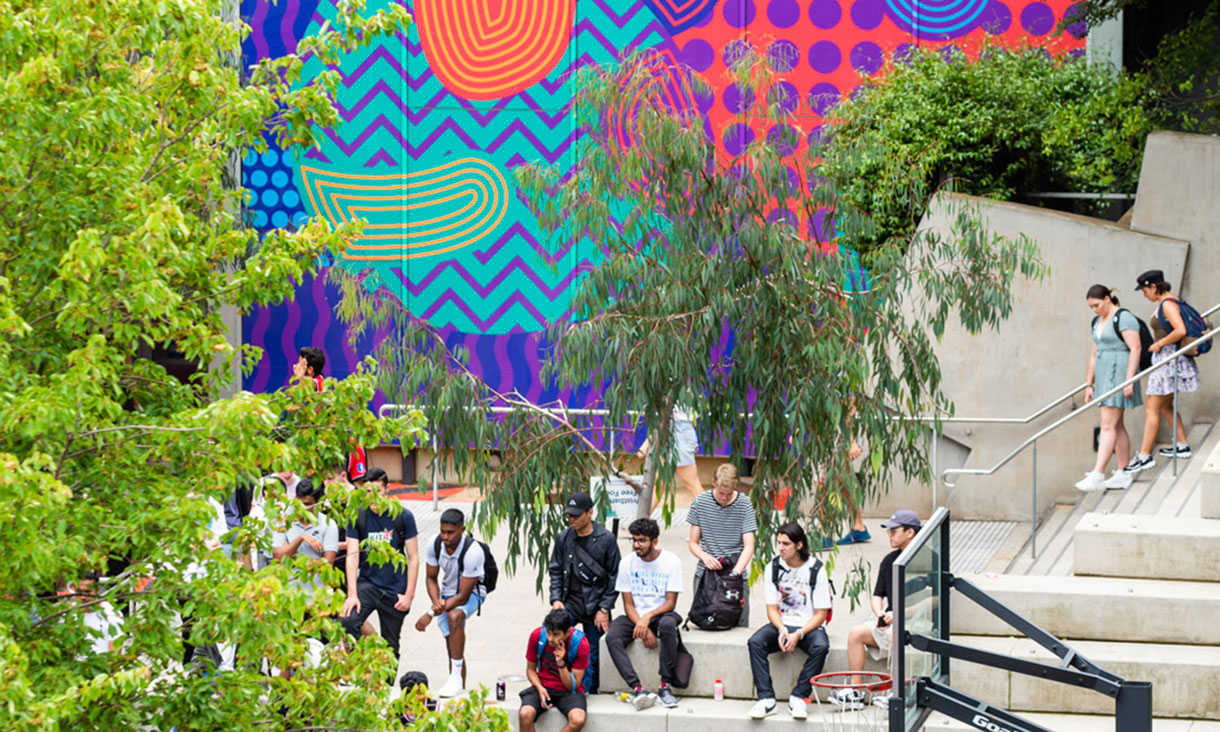Sustainability

RMIT University is a public institution under Victorian law and stands on Aboriginal Country of the Kulin Nation. RMIT recognises and acknowledges the Bundjil Statement, which helps all RMIT community to respectfully work, live and study on Aboriginal Country through a dhumbali (commitment) to not harm the wurneet (waterways), biik biik (lands) and bubups (children) of Bundjil. RMIT supports the rights and the self-determination of Indigenous peoples and acknowledges the importance of Indigenous knowledge in preserving and protecting place for current and future generations.
RMIT has a strong governance structure in place to make sustainability an organisational priority and that decision making reflects the University's values.
The RMIT-wide SDGs Project, initiated in June 2018, aims to improve University accountability in relation to its contributions to the SDGs.
RMIT is a global leader in climate action, taking practical steps and innovative projects to become carbon neutral and adapt to a changing climate.
RMIT University is committed to leading the shift into a circular economy that values resources and thinks holistically about our systems, processes and supply chains.
RMIT aims to create sustainable and inclusive spaces that enhance the experience and wellbeing of our people and have a positive impact on our surrounding environment and society.
RMIT is committed to reducing water use intensity across our campuses, through a focus on efficiency, harvesting and reuse.
RMIT focuses on creating a great campus life, where choosing sustainable options is easy for our students, staff and wider community, including transport and retail.
RMIT is committed to widespread engagement across the community of students and staff to encourage the adoption of sustainable practices and outcomes.

RMIT’s campuses have a range of open and green spaces which are accessible to the general public free of charge.
Carbon markets rewarding the recovery of degraded environments risk penalising long-term Indigenous stewardship, according to a coalition of experts writing in Nature Climate Change.
RMIT University researchers have developed a flexible nylon-film device that generates electricity from compression and keeps working even after being run over by a car multiple times, opening the door to self-powered sensors on our roads and other electronic devices.
New research suggests an Australian desert plant could help food manufacturers improve protein quality and reduce reliance on added salt in staple foods.
An RMIT-led event at CERES Community Environmental Park convened philosophers, artists, educators and Cultural Custodians to collectively reimagine regenerative relationships with land and place.
Please feel free to contact us to directly via sustainability@rmit.edu.au.


RMIT University acknowledges the people of the Woi wurrung and Boon wurrung language groups of the eastern Kulin Nation on whose unceded lands we conduct the business of the University. RMIT University respectfully acknowledges their Ancestors and Elders, past and present. RMIT also acknowledges the Traditional Custodians and their Ancestors of the lands and waters across Australia where we conduct our business - Artwork 'Sentient' by Hollie Johnson, Gunaikurnai and Monero Ngarigo.
Learn more about our commitment to Indigenous cultures